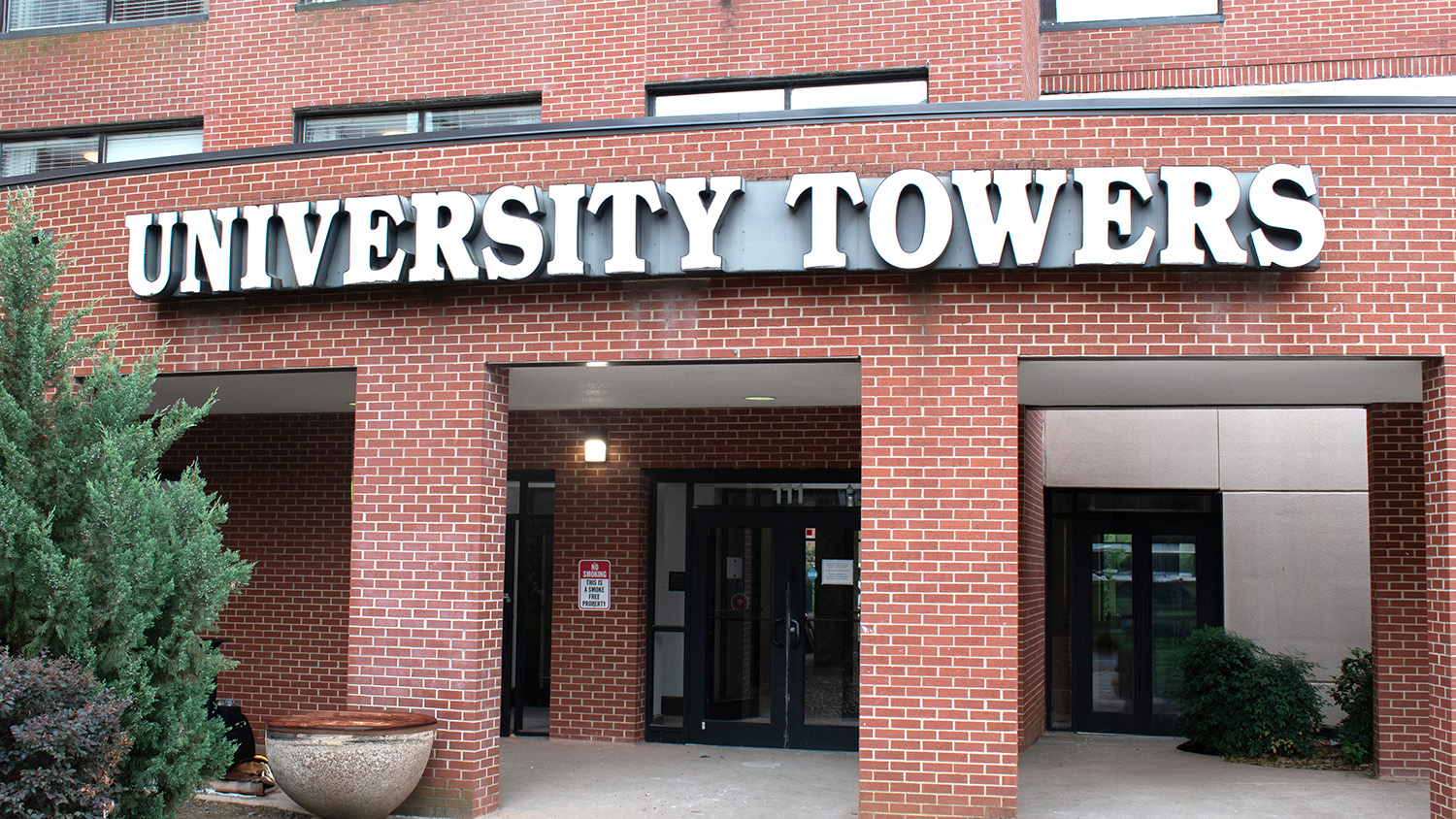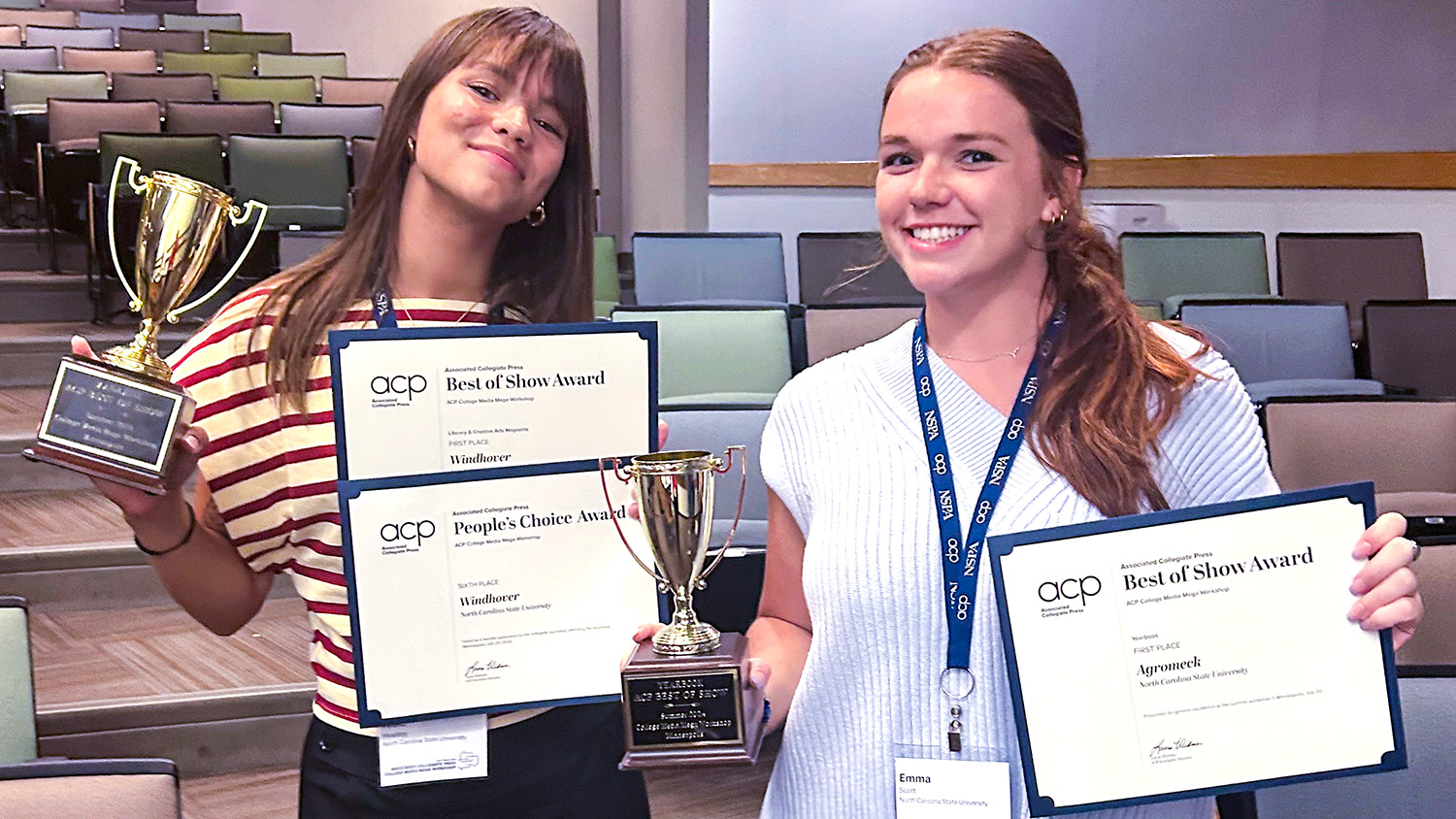Get to Know DASA Assessment
Many aspects of academic and student life are driven by feedback from students. DASA Assessment takes that data to help the Wolfpack be as successful as possible in the classroom and beyond.

By Caleb White, DASA Marketing and Communications Intern
In the Division of Academic and Student Affairs, staff and faculty make data driven decisions to improve students’ experiences. In fact, that data often comes directly from students through surveys and other assessments.
DASA Assessment is responsible for coordinating the collection of data to help the Wolfpack be as successful as possible in the classroom and beyond. For example, did you know New Student Programs updates Wolfpack Welcome Week events and other transition programming based on feedback DASA Assessment receives from students each year?
If you want your voice to be heard and to improve your own experience at NC State as well as the experience for those who come after you, make sure to respond to DASA Assessment’s First Term Survey and other materials they send to you throughout the year. Be on the lookout for the Senior Assessment in your email later this month!
We spoke to Samantha Rich, director of DASA Assessment, about the program and its impact on NC State students:
Tell us about DASA Assessment and how your work impacts NC State students?
Our ultimate goal is to make sure that students have an exceptional experience. We strive to make that happen through continuous improvement of student learning, programs and services. This process is known as assessment. All of the units in the Division of Academic and Student Affairs (DASA) have stated “outcomes;” outcomes are the specific skills staff are teaching students in their programs, or the stated quality of services we expect. Faculty and staff collect data about their outcomes in order to discover strengths and areas for improvement in programs, services and student learning. We support DASA faculty and staff through the assessment process by assisting units in writing outcomes, helping units create tools to measure outcomes (such as rubrics, surveys, focus groups, etc.), and providing data analysis and presentation support. All of these efforts help DASA units continuously improve in our mission to support NC State students.
In partnership with the Office of Assessment and Accreditation, we also support the collection and analysis of data about NC State’s Pack Proficiencies: critical thinking, creative thinking, quantitative literacy, oral communication and written communication. The goal is to make sure that NC State students of all majors and colleges are developing learning outcomes in these critical areas. To do this, we assess students as incoming first-years and then again as graduating seniors. Faculty then use the data to make improvements in their courses that can better support student learning.
What is the First Term Survey and how does that factor into the student experience?
Another important role of DASA Assessment is to administer the First Term Survey. All first-year and transfer students are invited to take the survey six weeks into their first semester. The First Term Survey helps faculty and staff learn how students are acclimating to NC State and areas where they may need more support in order to be successful. We share these results with faculty and staff across campus and we identify ways to intervene with first term students.
For example, fall 2020 First Term Survey respondents told us about some of their positive virtual experiences. We reviewed all their feedback and came up with strategies for engaging students in a virtual environment that will hopefully make students feel more connected to each other and their instructors. The First Term Survey is also helpful in identifying students who may be struggling academically or who are expressing mental health concerns. We connect those students to resources and staff who are best suited to reach out and help them.
What are some of the other important surveys and initiatives by DASA Assessment? What are some examples of how that data is used?
One of our favorite programs is Pack Assessment Ambassadors (PAA). PAA is part of a larger initiative called Retention Foundations Assessment where faculty, staff and students across DASA utilize data to better understand the factors that affect retention at NC State. Our Pack Assessment Ambassadors are undergraduate students who we train to administer focus groups with other NC State students. Through these Ambassador-led focus groups, we’re able to learn more about students’ experiences on campus. This peer-to-peer assessment provides faculty and staff a completely different perspective and results in data that DASA can use to improve programs and services.
DASA units take action from findings based on the mission and focus of their own unit. For example, last year we presented survey and focus group results about students’ academic engagement behaviors. One of the findings was that students felt hesitant to initiate a relationship with faculty members. In response to this data, Military and Veteran Services decided to begin hosting mix and mingle events for students to meet with faculty and staff veterans. Additional examples of how DASA units take action from data are available on our website.
How has COVID-19 affected DASA Assessment and its functions?
We’ve been really lucky in that COVID-19 hasn’t affected our day-to-day very much. DASA units are still engaging in assessment — assessment just might look a little different if programs and services have moved online. We provide virtual professional development workshops for faculty and staff and we provide remote consultations.
In terms of our Pack Proficiencies assessment, we have experienced some changes. Students generally complete those assessments in-person on campus; however we’ve had to move those into virtual format with remote proctoring. We are actually administering a written communication assessment for seniors this spring! We hope that by offering this assessment virtually, more seniors will be available to participate.
What is something people might not know or realize about DASA Assessment and its role in the division and at NC State in general?
DASA Assessment champions the experiences of students through data. Everyone experiences NC State differently, and when you participate in an assessment, you make sure that your story is heard. Faculty and staff use assessment results to make NC State even better. Assessment is a tradition in the NC State community and it is win-win for students and faculty. If you get the opportunity to participate in assessment while at NC State, show your Wolfpack pride and help us create an exceptional experience for all students!
- Categories:


